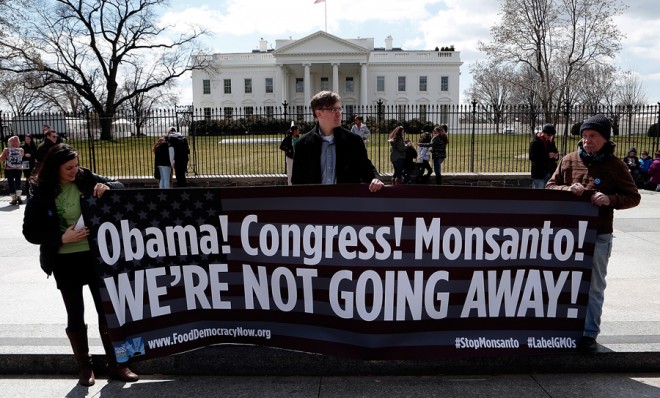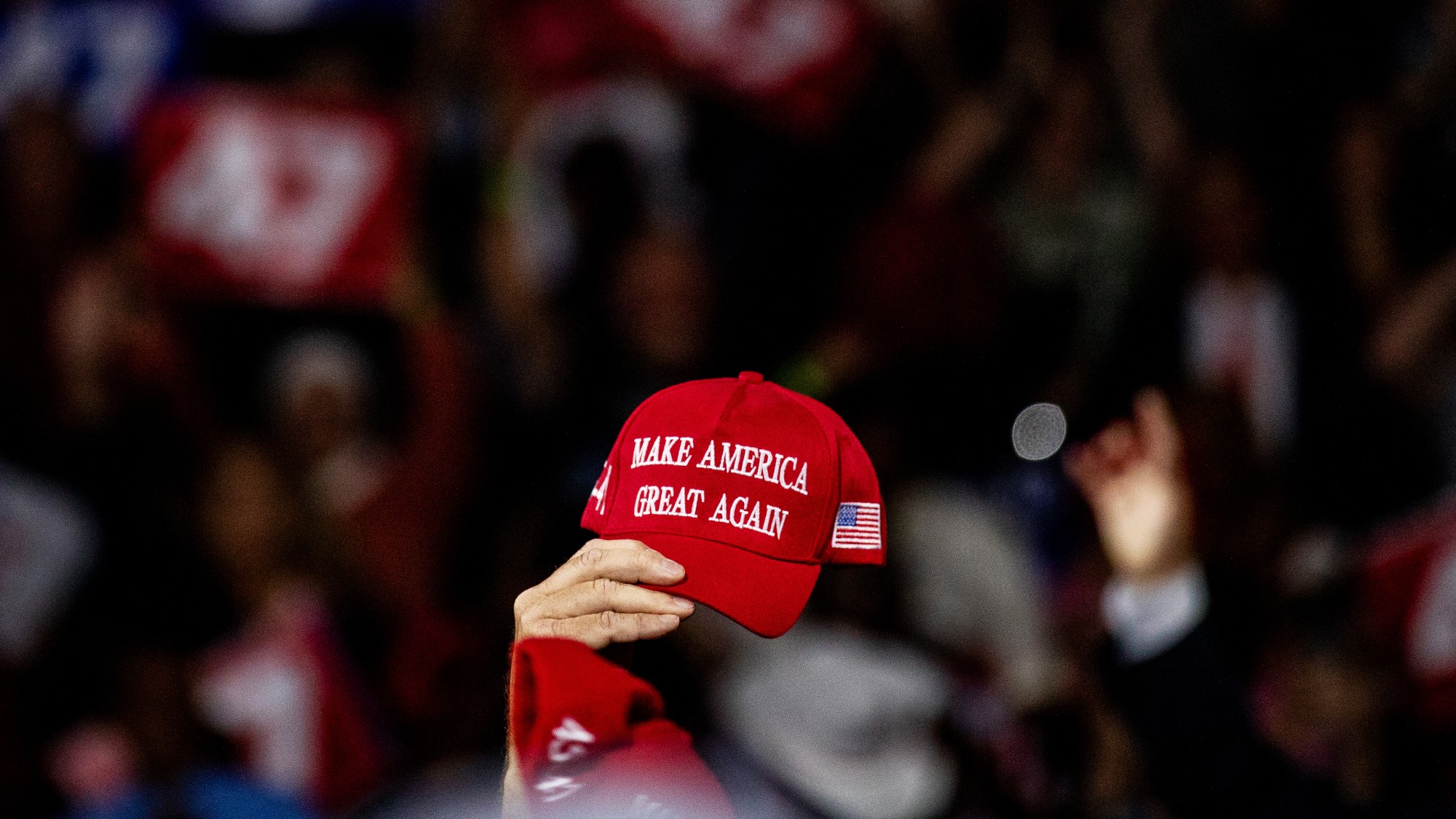Monsanto's big patent win at the Supreme Court
The decision is a boon for agribusiness, but a blow to small farmers


The Supreme Court on Monday unanimously ruled that an Indiana farmer violated agribusiness giant Monsanto's patent on a genetically modified soybean when he reused seeds from the plants without paying the company.
The ruling is a major victory for Monsanto and other biotech companies, as the court affirmed that their patents extend beyond the seeds farmers initially purchase. Farmer Vernon Hugh Bowman, the defendant in the case, had argued that Monsanto's Roundup Ready soybeans were self-replicating, and should therefore be free for him to reuse due to "patent exhaustion," or the right for the buyer of a patented item to "use or resell" that item.
Yet Justice Elena Kagan, writing the court's decision, said that argument would effectively render such patents moot, so farmers should not be permitted to reproduce seeds without the seed maker's permission.
The Week
Escape your echo chamber. Get the facts behind the news, plus analysis from multiple perspectives.

Sign up for The Week's Free Newsletters
From our morning news briefing to a weekly Good News Newsletter, get the best of The Week delivered directly to your inbox.
From our morning news briefing to a weekly Good News Newsletter, get the best of The Week delivered directly to your inbox.
Under the patent exhaustion doctrine, Bowman could resell the patented soybeans he purchased from the grain elevator; so too he could consume the beans himself or feed them to his animals. Monsanto, although the patent holder, would have no business interfering in those uses of Roundup Ready beans. But the exhaustion doctrine does not enable Bowman to make additional patented soybeans without Monsanto’s permission (either express or implied). And that is precisely what Bowman did. [Supreme Court]
Monsanto praised the ruling, saying in a statement that it "ensures that longstanding principles of patent law apply to breakthrough 21st century technologies that are central to meeting the growing demands of our planet and its people."
Food activists, who have warned of giving agribusiness behemoths sweeping power to patent — and thus, they fear, control over food sources — were less pleased.
"The court's ruling is contrary to logic and to agronomics, because it improperly attributes seeds' reproduction to farmers, rather than nature," Andrew Kimbrell, executive director of Center for Food Safety, said in a statement.
According to a February report from the Center for Food Safety, three agribusiness titans control more than half of the global seed market, which has sent the cost of planting one acre of soybeans up a staggering 325 percent over the last 15 years. Meanwhile, the report says, Monsanto has filed 144 lawsuits against some 400 farmers in 27 states across the country.
A free daily email with the biggest news stories of the day – and the best features from TheWeek.com
In the case before the Supreme Court, Bowman purchased Monsanto's Roundup Ready soybean seeds — a genetically modified seed designed to withstand the ubiquitous herbicide of the same name — then grew the crop and retained some seeds that the harvest produced. According to Monsanto, he reused those seeds for eight subsequent crops, which was explicitly forbidden in the contract he signed with the company.
Monsanto argues that the seeds are "intellectual property," and that seed patents are a necessary financial protection that "encourage and reward innovation."
"If plant breeders were not able to protect the plant varieties they develop from unauthorized reproduction, there would be less incentive for them to develop improved plant varieties," the company's website says.
Bowman has admitted to reusing the seeds, but told NPR that he "couldn't imagine that they'd give a rat's behind."
It turned out that Monsanto did. They sued Bowman, and a federal judge in Indiana ordered him to pay the company $84,000. An appeals court upheld that decision, as did the Supreme Court, with Kagan writing that "if simple copying were a protected use, a patent would plummet in value after the first sale of the first item containing the invention."
However, the high court stopped short of extending broad patent protection to other self-replicating fields like software and genetic mapping. As the Los Angeles Times' David G. Savage notes, had the court decided in favor of Bowman, "the decision could have upset the industries that depend on years of profit from their patented inventions."
"Our holding today is limited — addressing the situation before us, rather than every one involving a self-replicating product," Kagan wrote. "We recognize that such inventions are becoming ever more prevalent, complex, and diverse. In another case, the article's self-replication might occur outside the purchaser's control. Or it might be a necessary but incidental step in using the item for another purpose."
Read the full ruling below:
Jon Terbush is an associate editor at TheWeek.com covering politics, sports, and other things he finds interesting. He has previously written for Talking Points Memo, Raw Story, and Business Insider.
-
 Giving up the booze
Giving up the boozeFeature Sobriety is not good for the alcohol industry.
-
 Minnesota fraud: Walz takes the hit
Minnesota fraud: Walz takes the hitFeature Minnesota Gov. Tim Walz will not seek re-election due to state welfare fraud scandal
-
 MAGA: The battle over ‘Heritage Americans’
MAGA: The battle over ‘Heritage Americans’Feature Blood-and-soil nationalism is roiling MAGA world
